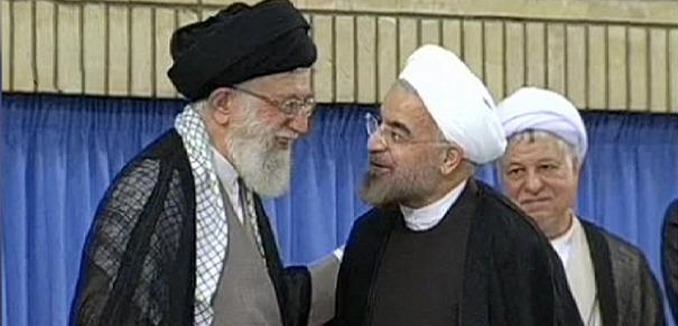President-elect Donald Trump will have to avoid “making the same assumptions and often the same mistakes” that prior administrations from both parties have made since the establishment of the Islamic Republic in 1979, Ray Takeyh, a senior fellow at the Council of Foreign Relations, wrote Monday in Politico.
According to him, the first mistake that Trump’s predecessors made was assuming that the United States could deal with moderates within the Iranian regime. Takeyh asserted that “the theocratic state purged the reformers from its midst” after the Green Revolution was crushed in 2009. While some disagreements between factions still exist, Takeyh wrote, “On core issues of regional hegemony and consolidation of clerical autocracy, the Islamic Republic has arrived at an agreement as both Supreme Leader Ali Khamenei and President Hassan Rouhani share the same objectives, even though their tactics may at times differ.” At its core, Iran “is a revolutionary state whose entire identity is invested in its hostility toward the West,” he wrote.
The existence of competing factions should not absolve the regime for its bad behavior, Takeyh pointed out. For example, the Carter administration avoided taking strong action during the hostage crisis for fear of hurting moderates’ influence, while the Reagan administration engaged in the arms-for-hostages deal in an attempt to boost the moderates. Neither effort was successful.
By signing the nuclear deal, President Barack Obama “hoped to help Rouhani consolidate his power,” Takeyh wrote. The result has been that Iran “has gone on to wreak havoc in Syria, Iraq, destabilize the Persian Gulf and engage in a massive repression of its citizens.”
A second lesson from history is that Iran is susceptible to threats of force. The Carter administration used the perceived toughness of the incoming Reagan administration to help end the hostage crisis, and the invasion of Iraq in 2003 convinced Iran to temporarily suspend its nuclear research program. However, when the Bush administration sought to engage with Iran in 2005, the Islamic Republic accelerated its nuclear program and sent militias to target American troops in Iraq.
Keeping this in mind, Takeyh recommended that the Trump administration take a harder line against Iran by working with America’s Arab allies and Israel to isolate Tehran. By reimposing sanctions and removing Iran from the global economy, the Trump administration could force it back to the negotiating table to improve aspects of the nuclear deal.
[Photo: irdc.ir ]




